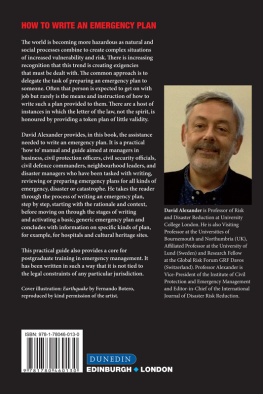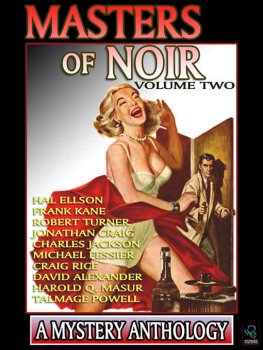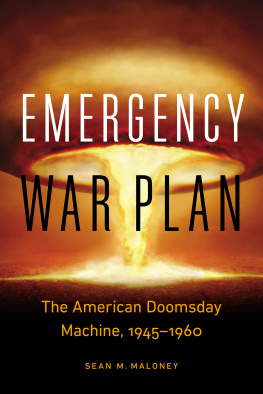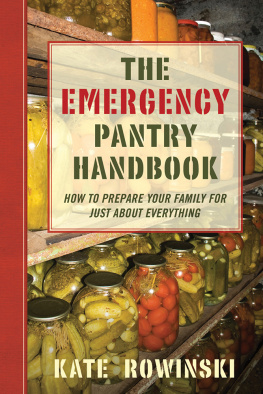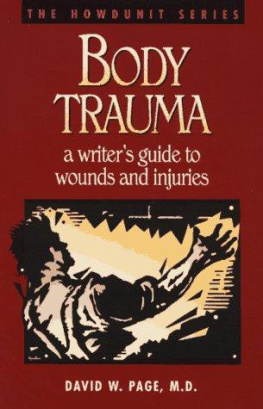David Alexander - How to Write an Emergency Plan
Here you can read online David Alexander - How to Write an Emergency Plan full text of the book (entire story) in english for free. Download pdf and epub, get meaning, cover and reviews about this ebook. year: 2016, publisher: Dunedin Academic Press Ltd, genre: Politics. Description of the work, (preface) as well as reviews are available. Best literature library LitArk.com created for fans of good reading and offers a wide selection of genres:
Romance novel
Science fiction
Adventure
Detective
Science
History
Home and family
Prose
Art
Politics
Computer
Non-fiction
Religion
Business
Children
Humor
Choose a favorite category and find really read worthwhile books. Enjoy immersion in the world of imagination, feel the emotions of the characters or learn something new for yourself, make an fascinating discovery.
- Book:How to Write an Emergency Plan
- Author:
- Publisher:Dunedin Academic Press Ltd
- Genre:
- Year:2016
- Rating:4 / 5
- Favourites:Add to favourites
- Your mark:
- 80
- 1
- 2
- 3
- 4
- 5
How to Write an Emergency Plan: summary, description and annotation
We offer to read an annotation, description, summary or preface (depends on what the author of the book "How to Write an Emergency Plan" wrote himself). If you haven't found the necessary information about the book — write in the comments, we will try to find it.
How to Write an Emergency Plan — read online for free the complete book (whole text) full work
Below is the text of the book, divided by pages. System saving the place of the last page read, allows you to conveniently read the book "How to Write an Emergency Plan" online for free, without having to search again every time where you left off. Put a bookmark, and you can go to the page where you finished reading at any time.
Font size:
Interval:
Bookmark:


David Alexander
UCL Institute for Risk and Disaster Reduction,
University College London

In 2002 I published a book entitled Principles of Emergency Planning and Management. In writing that work, my aim was to describe the processes of preparing for and responding to disasters, crises and civil contingencies. I based the work on principles because I wished to dissociate it from particular systems of emergency management. Then, as now, many of the books in this field are tied to individual systems of public administration, particularly the federal system of the United States of America, which limits their usefulness in other contexts. In Europe, for example, there are seven types of legal system, and these are unevenly distributed among monarchies, federal republics, island republics, and countries with either devolved or centralized administrations. Hence, there is no one-size-fits-all civil protection system that can act as a template. Nevertheless, I do not believe that, in terms of how emergency response is organized, there must necessarily be a fundamental difference between the worlds richest and poorest countries. They all need safety and rapid response to civil contingencies. All countries can learn from others and derive benefit from incorporating good practice from abroad into their own systems, with modifications to fit local conditions. Equipment may be expensive, but planning to make the best use of what one has or can afford is not likely to break the bank.
The feedback I received from the Principles book was generally positive, but it indicated that some readers were facing severely practical problems in frontline jobs that required them to provide workable answers. Many were new to emergency planning and did not know where to start. When, at last, I found the time to consider a new edition of Principles, I decided to give it a more hands-on profile and endeavour to meet the needs of people who had been given the task of writing and implementing emergency plans. In order to maximize the geographical scope of the book, I decided to stay with my decision not to tie the explanations to particular systems and countries. I trust that the reader will be able to make the necessary connections and adapt general approaches to the configuration of services in any country or region.
Some readers may be sceptical about the value of emergency planning. It is true that in a crisis the first thing that goes out of the window is the plan. However, I believe passionately, not in the plan as a document or instrument, but in the process of planning, and I believe it should be a flexible process that is able to adapt to dynamically changing circumstances. Moreover, it should not stop when a basic document the plan has been prepared: it should continue right through the next emergency to the recovery phases.
An emergency plan is a structured document, an instrument that outlines the responses envisaged for certain kinds of civil contingency, such as a flood, a major snowstorm or a transportation crash with casualties. Emergency planning is simultaneously an art and a science. It involves thinking the unthinkable so that one can be ready for those aspects that require preparation beforehand because they cannot effectively be improvised during the crisis. There are so many ramifications that not all of them can be covered in a book such as this. However, the skill that must be learned is to think through the implications of prior decision-making. Some are obvious, but many are not, which is one of the main justifications for writing this book.
There are good emergency plans and there are bad ones. A plan may be too obtuse, complex, grandiose, idealistic; too detailed or short on details; or good in theory but not in practice. Thus there is always room to improve. The failure of a plan to solve the problem of how to respond to an emergency does not invalidate planning as such; rather, it demands a better plan and a renewed effort to improve the process of planning.
Emergency planning is a social endeavour that needs to be backed by hard scientific information; for example, on the magnitude and frequency of certain hazard impacts. By social I mean that it should involve consultation and collaboration. Often, it is as much a political process as a technical one. Public administration, hazard and risk science, journalism, technical response, welfare and other services must work in concert. The plan is their script, and as such it is something with which they all need to feel comfortable and familiar. I hope this book will convince readers of the importance of good emergency planning, that it will help disseminate a methodology and also provide a justification for more and better emergency plans. Nowhere on Earth is free from hazard and risk. Hence, emergency planning is not a luxury, but a necessity.
In this book I have not entirely abandoned the issue of principles. Hence, the reader will find these stated at intervals in the text. The intention here is to provide some guiding markers along the route to explanation of the emergency planning process. The overall aim is to demystify a process that, in many respects, is a form of codified common sense, but one in which the challenge is to do much more than merely thinking sensibly. The issues, and the connections between them, are complex; hence the need for a book that sets them down in print, in some kind of logical order, or what Albert Einstein described as a feeling for the order lying behind the experience.
In preparing for battle I have always found that plans are useless, but planning is indispensable. General Dwight D. Eisenhower
Nothing in progression can rest on its original plan. We may as well think of rocking a grown man in the cradle of an infant. Edmund Burke, Letter to the Sheriffs of Bristol (1777)
Emergency plans are becoming increasingly important in modern life. They reflect the gradual realization during the twenty-first century that there is no justification for failure to prepare for adverse events whose occurrence can be foreseen or predicted. They also reflect a potentially more hazardous world affected by the gathering pace of global change, a world whose sheer complexity makes it daily more vulnerable to threats and hazards. The alternative to making plans that help one tackle crises logically and rationally is improvisation. As all emergencies have some uniqueness in them, this cannot be ruled out completely, but if it gets the upper hand the result is almost always inefficiency. In emergency response this is usually manifest in casualties that can be avoided and damage that could have been reduced.
Emergency plans are needed, and perhaps legally required, for a wide variety of civil institutions, including the following:
public administrations at the local, regional and national levels
international bodies such as the United Nations and European Union
factories that produce hazardous substances or use dangerous production processes
businesses that could suffer severe disruption or damage as a result of adverse events
key facilities, such as airports and hospitals, and other forms of critical infrastructure
Font size:
Interval:
Bookmark:
Similar books «How to Write an Emergency Plan»
Look at similar books to How to Write an Emergency Plan. We have selected literature similar in name and meaning in the hope of providing readers with more options to find new, interesting, not yet read works.
Discussion, reviews of the book How to Write an Emergency Plan and just readers' own opinions. Leave your comments, write what you think about the work, its meaning or the main characters. Specify what exactly you liked and what you didn't like, and why you think so.

